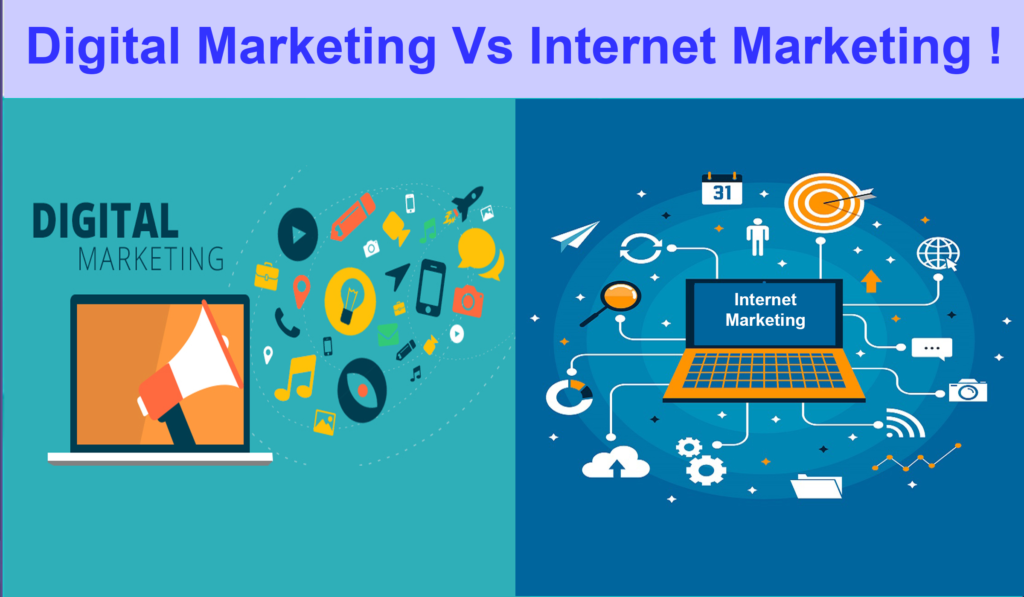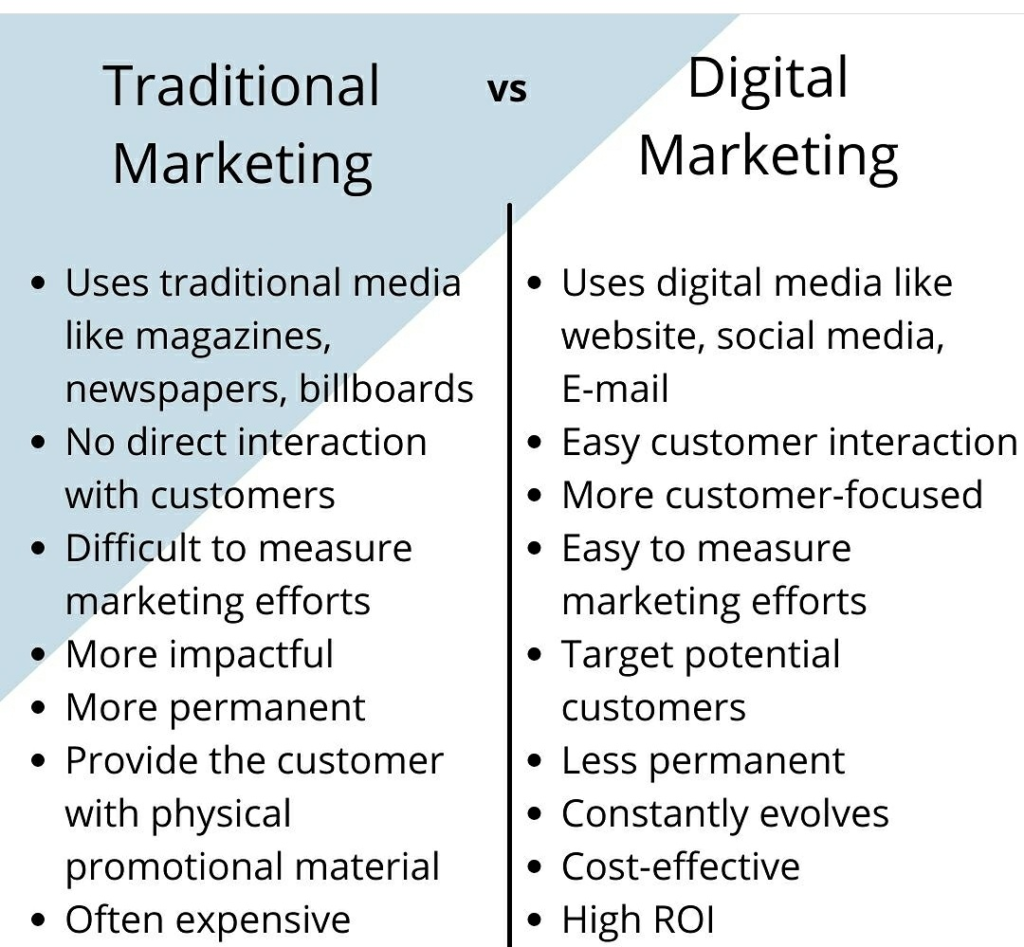
Defining Digital Marketing and Online Marketing
Digital marketing encompasses all marketing efforts that use digital channels to reach and engage customers. This includes a wide range of channels, such as:
- Social media
- Mobile
- Search engines
- Websites
Online marketing, on the other hand, is a subset of digital marketing that focuses specifically on marketing products or services on the internet. This typically involves the use of:
- Website design and development
- Search engine optimization (SEO)
- Social media advertising
- Display ads
While online marketing is an important part of digital marketing, it is not the only component. Digital marketing also includes offline channels, such as television, radio, and print advertising.
Digital and online marketing differ mainly in scope. Digital marketing includes all digital marketing, while online marketing is limited to the internet.
Understanding the distinction between digital marketing and online marketing is important for businesses because it helps them to:
- Target their marketing efforts more effectively
- Allocate their marketing budget more efficiently
- Measure the results of their marketing campaigns more accurately
In today’s digital environment, firms need powerful digital marketing strategies. To create a business-specific plan, it’s necessary to understand the difference between digital and internet marketing.
Key Differences Between Digital Marketing and Online Marketing

| Feature | Digital Marketing | Online Marketing |
|---|---|---|
| Scope | Encompasses all marketing efforts that use digital channels | Focuses specifically on marketing products or services on the internet |
| Channels | Includes a wide range of channels, such as social media, email, mobile, search, and more | Primarily limited to websites, search engines, and social media |
| Reach | Has a broader reach as it encompasses offline channels | Restricted to digital devices and internet users |
| Examples | Email campaigns, social media advertising, and search engine optimization (SEO) | Website design, e-commerce, display ads on search engines and social media |
Additional key differences:
- Digital marketing is more interactive and personalized. This is because digital channels allow for two-way communication between businesses and customers.
- Online marketing is more measurable. This is because digital channels provide data that can be used to track the performance of marketing campaigns.
- Digital marketing is constantly evolving. This is because new digital technologies are emerging all the time.
Although different, digital and online marketing are similar and often overlap. Indeed, many companies employ both digital and internet marketing methods to reach their target audience.
In today’s digital environment, successful marketing requires understanding the difference between digital and online marketing and developing a plan that employs the correct mix of channels to reach the right audience.
Importance of Differentiation

Understanding the difference between digital marketing and online marketing is important for businesses for several reasons:
- Effective targeting: Businesses can better target their marketing by distinguishing digital from online marketing. If a business wants to attract online shoppers, they would use SEO and PPC advertising.
- Resource allocation: optimizing marketing budgets by funding outlets that achieve goals. If a business has a restricted marketing budget, they may focus on email and social media marketing, which offer lower cost per lead.
- Measurable results: Separating digital and online marketing helps assign ROI to channels. Digital marketing channels offer more data and analytics than offline methods.
In addition to these benefits, differentiating between digital marketing and online marketing can also help businesses to:
- Avoid duplication: By understanding the unique capabilities of each channel, businesses can avoid duplicating their marketing efforts across multiple channels.
- Maximize reach: By using a combination of digital and online marketing channels, businesses can maximize their reach and impact.
- Stay ahead of the competition: The marketing landscape is constantly evolving, and businesses that understand the difference between digital marketing and online marketing will be better positioned to stay ahead of the competition.
Overall, understanding the difference between digital marketing and online marketing is essential for businesses that want to develop effective and efficient marketing strategies.
Other Important Points
Convergence: The lines between digital and internet marketing are blurring. Mobile gadgets and social media have contributed to this. Business marketing strategies must include digital and online mediums.
Digital-first approach: Digital marketing typically underpins strong marketing strategies in today’s linked society. Because digital networks have several advantages than offline ones, such as:
- Greater reach
- More precise targeting
- Measurable results
- Lower cost
Integration: Combining digital and online marketing can boost reach and impact. Social media could be used to promote a new product and drive visitors to a website where people can buy it.
Conclusion
The distinctions between digital and online marketing are blurring as technology evolves and channels overlap. Businesses must still comprehend the main differences between these two types of marketing to create effective and efficient marketing strategies.
By understanding the scope, channels, reach, and key differences between digital marketing and online marketing, businesses can:
- Target their marketing efforts more effectively
- Allocate their marketing budget more efficiently
- Measure the results of their marketing campaigns more accurately
- Develop integrated marketing strategies that maximize reach and impact
- Stay ahead of the competition
In today’s digital environment, businesses need great digital marketing. To create a business-specific plan, it’s necessary to understand the difference between digital and internet marketing.
Additional tips for businesses:
- Develop a comprehensive digital marketing strategy that includes both online and offline channels.
- Use a mix of digital marketing channels to reach your target audience.
- Track the results of your marketing campaigns and make adjustments as needed.
- Stay up-to-date on the latest digital marketing trends.
By following these tips, businesses can develop effective and efficient marketing strategies that will help them achieve their desired goals.

